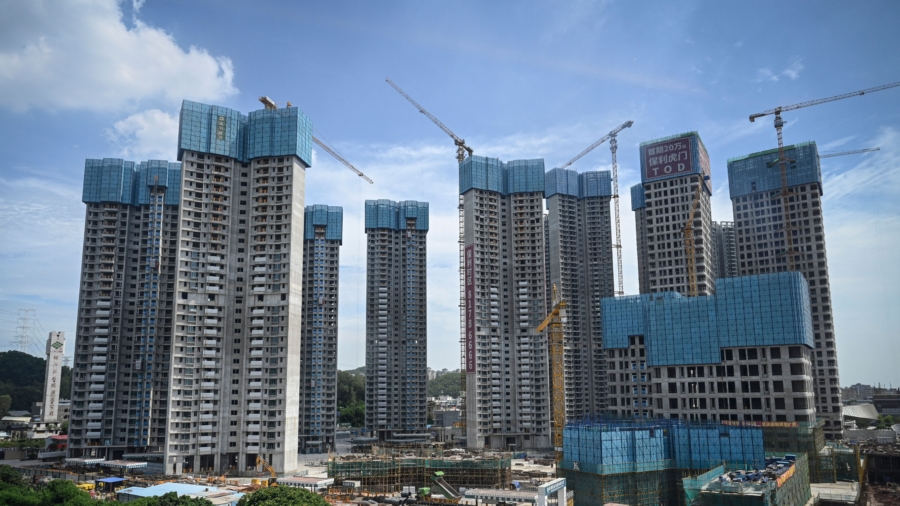The global commercial real estate market could soon default on tens of billions in assets which would chaos to the broader global economy.
According to data compiled by Bloomberg, about $175 billion worth of real estate credit is invested in distressed assets. These distressed assets are properties whose owners are nearing a default or have already defaulted on their debts and are in the bankruptcy process.
The amount of investment in distressed real estate assets is about four times more than the next largest industry, according to Bloomberg.
The level of investment in distressed assets is particularly high in Europe. According to data shared with Bloomberg by the law firm Weil, Gotshal & Manges, European real estate distress levels are the highest they’ve been in a decade.
The distress in the commercial real estate market is fed by falling property values and decreased liquidity.
Commercial property values in the United States fell by 13 percent in 2022 on the Commercial Property Price Index (CPPI) maintained by the real estate market research firm Green Street. Data provided to Bloomberg by MSCI Inc. showed that commercial property values in the United Kingdom had fallen by 20 percent in the second half of 2022.
The amount of investment in distressed assets, combined with rising interest rates, appears to be decreasing the amount of credit available for future purchases.
Last month, the Federal Reserve voted to raise its federal funds rate by 50 basis points, marking the seventh interest rate increase since March and an increase of 425 basis points over that same time frame.
The Federal Reserve has been raising interest rates as a means of combatting high inflation. Higher interest rates increase the cost of borrowing money, and with a higher cost associated with borrowing money, the Federal Reserve expects demand will fall, causing prices to also fall.
Vance Ginn, president of Ginn economic consulting, recently told NTD News that increasing interest rates would “drain some liquidity out of the market” and raise the cost of getting a loan for assets like homes and automobiles.
Increased costs of getting new credit could prevent distressed asset owners from being able to refinance their debts to avoid foreclosing.
Housing Market Pressure
The high levels of distressed debt in the real estate market are causing lenders to advise borrowers to start selling off their assets to avoid defaults and foreclosures.
This increased pressure to sell off assets has caused real estate developers to pause new housing projects. Construction on an estimated 2 million new homes in China was paused in September as demand in the housing market has slowed.
Several high-profile real estate projects have already shown indications that they are in distress.
In November, Brookfield’s real estate unit warned that it could struggle to refinance debt on two downtown Los Angeles towers, which could result in foreclosures, Bloomberg reported.
The Legoland Korea Resort in Chuncheon, South Korea, missed a debt payment on Sept. 29, 2022, raising the prospect of a default just months after the theme park opened in May. That missed debt payment caused a credit crunch, leading the South Korean central bank to act to stabilize the market.
In July, Australia’s Caydon Property Group Ltd. went into receivership as it struggled with its debts.
U.S. investors also see growing signs of a downturn in the U.S. real estate market. Michael Knott, the head of Green Street’s real estate investment trust (REIT) research, told Bloomberg that he expects another five to 10 percent drop in property values in 2023, following the 13 percent drop last year. Knott said U.S. property values are still “moderately overpriced” and “appraisers are behind the curve, transaction activity has slowed down considerably.”
A fall in transactions in real estate could precede a downturn in other parts of the U.S. economy, in turn hurting jobs and economic growth.


